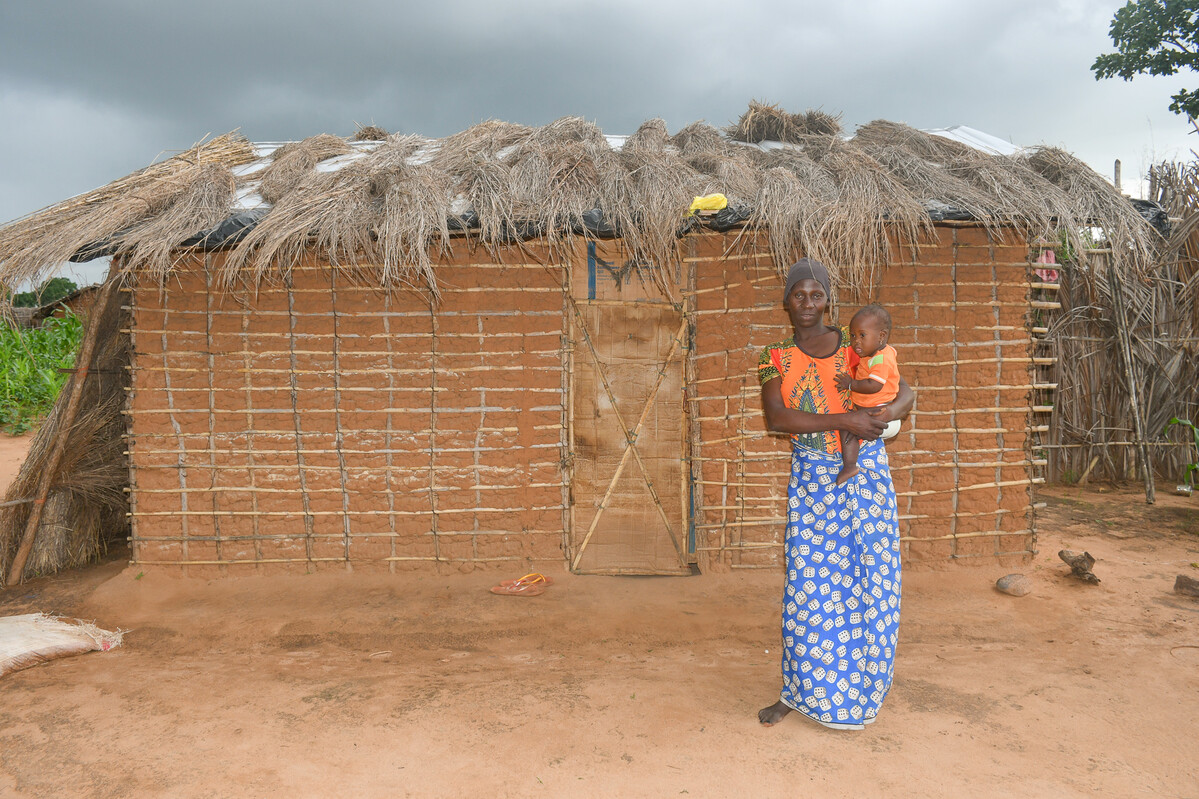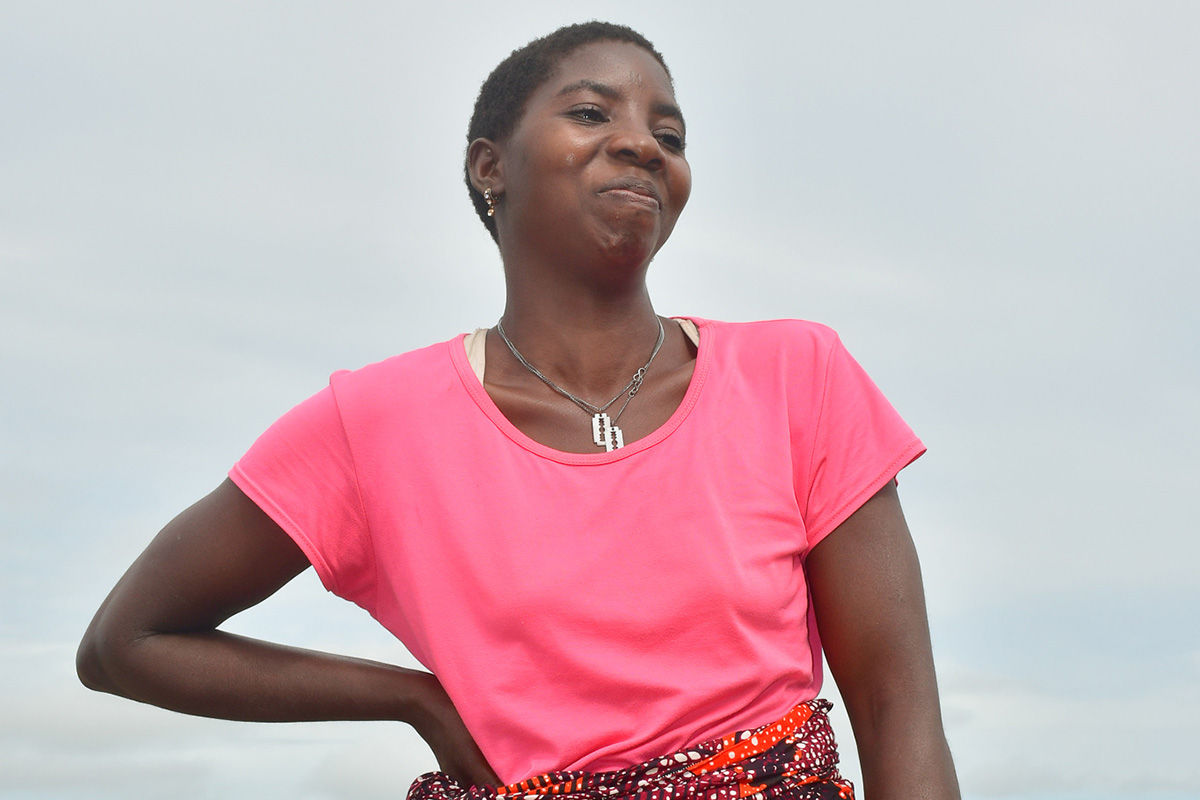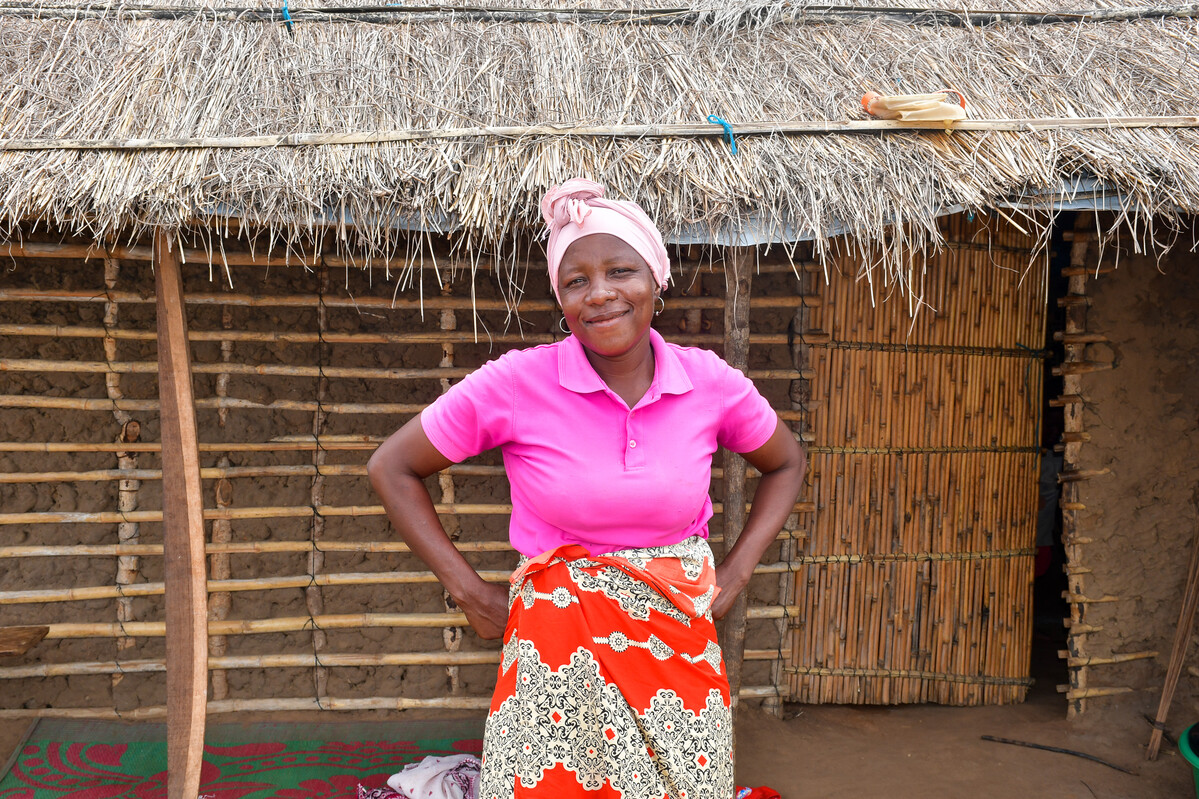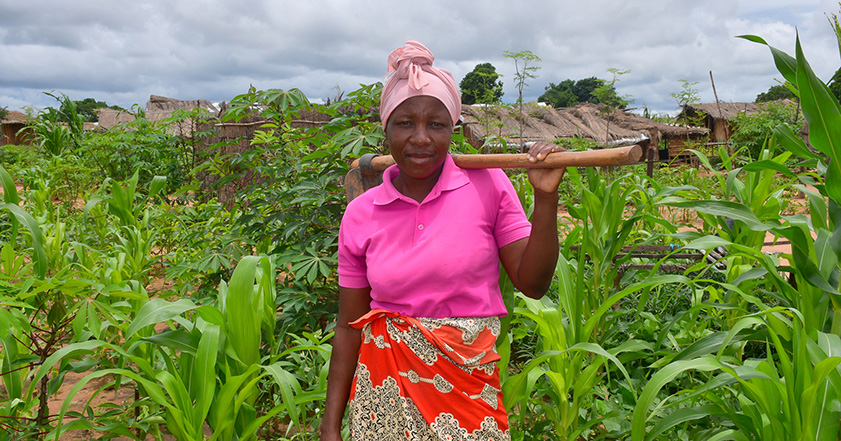It has been six years since extremist group Ahlu Sunna Wal-Jama launched attacks in the northern province of Cabo Delgado in Mozambique. Since then the region has continued to be rocked by attacks from insurgent groups. OCHA estimates that 2 million people are in need of humanitarian assistance.
We’re working with CARE to support people without shelter in Mozambique, and those who have been in resettlement camps for over six months. In this blog we are sharing stories from three women we have supported. They survived losing everything in the face of violence.
Sifa’s Story

When insurgents arrived in Sifa’s village, her first thought was for the safety of her children. She fled with them into the bush nearby, leaving everything behind.
Sifa recalled, “I ran away without my husband. I fled to one side, to this day I don’t know where he is. After hiding in the bush, I went back to my village to see the situation in my house. When I arrived everything was burnt, I could not [salvage] anything.”
After losing her home, Sifa had to walk to safety through the bush. She was pregnant at the time and gave birth while trying to flee the insurgents. She had no medical assistance but the ladies she was travelling with supported her and gave her warm cloths to wrap the baby in.
When they arrived at a resettlement site in Montepuez, the family initially stayed in a transit centre. When Sifa heard they were distributing land in a nearby village, she went there and asked a man to help her build a hut.
Sifa received a package of aid from ShelterBox and CARE. “Last week we received tarpaulins, saws, hoes and more,” she said. “Those were very important things for us, because our houses were covered only with dry grass which did not protect us when it rained. Now what we need most are mosquito nets, mats, and other [household] items.”
When reflecting on life in the resettlement camp, Sifa’s biggest frustration was being unable to plant crops and farm. Among the aid she received were tools including a hoe and an axe. These will help Sifa cultivate the land around her shelter in the hopes of generating some food for her family, and as an activity to do while searching for new ways to generate income for her household.
Biata’s Story

Biata remembers her old home fondly.
“Before the war, our house was in good condition. We raised chickens and we had our fields where we produced enough to eat and sell. We had cooking utensils, but when the insurgents came to our village, we could not take anything with us because they burned everything.”
Biata fled from the violence with her husband and seven children. The journey was difficult for the family, as they were forced to move on again and again.
“We ran away and stayed [in another village] there for a week with nothing to eat. Then we left for another village and walked from there to [another village]. The attackers entered again, and we fled. After a week, we got a car that took us to the resettlement camp.”
When they arrived in the resettlement camp Biata and her family had nothing. Everything they owned had been destroyed. Similar to Sifa, one of Biata’s biggest frustrations was not being able to work to support her family.
“Here in the displacement camp, we are suffering because we depend on aid. The best living conditions for me would be to get my food without depending on aid. We stayed for one or two months without receiving any food. In my house, I could look for food in my field every day.”
Biata received an aid package that contained a number of items including a kitchen set, tarpaulin, solar lamp and mosquito net. The tarpaulin was very welcome, as it protects their shelter from the torrential rain common in Mozambique.
Despite everything, Biata still looks ahead to the future. “The three things I would like to have to improve my life are: a business, school for my children to study and anything else you can do for us are welcome.”
Racia’s Story

Racia and her family nearly lost everything in Cyclone Kenneth in 2019. Just as they were getting back on their feet, the insurgents arrived.
Racia recalls, “Before the cyclone, I had my house, my food, my things. I felt good because I was in my house. When the cyclone came it took everything I had. After the cyclone, when I was getting back on my feet and recovering what I had lost, the insurgents appeared. They burnt all the houses. We ran into the bush, and I didn’t see my son for two days. I was injured, but at the time I was running I didn’t feel the injuries.”
As well as burning the houses, the insurgents destroyed all the infrastructure in the village. Racia also remembers them shooting non-stop for over three hours. Racia and her family stayed in the bush for several days. She then returned to see what remained of her village.
“I stayed for two days in the bush, and only on the third day, I could go back to the village to see how my house looked. It took a lot of courage to return to the village, but when I got home I found nothing, everything was burnt. When I saw that there was nothing left to recover I went back to the bush. Then we started walking to a village, and from there we took transport to Cabo Delgado.”
“When I finally arrived in this camp, I had nothing, only my children.”
In 2022 Racia received a shelter kit and household items from ShelterBox and CARE. With them she has been able to protect her home with a tarpaulin, and cook for her family. Racia’s children still suffered trauma from the violence they had experienced. “Children play normally, but sometimes they are affected by malaria. Sometimes when children hear sounds like gunshots, they come running thinking it is the insurgents.”
She also thinks fondly back to her old life. “Here I don’t have the same comfort that I had at home. At home, I had a television, my children watched and enjoyed themselves. I would like to have all this here too. I would like to have a mattress, electricity and a telephone.”
Racia still dreams of returning home one day. “I would like to return home and live without any fear or worry.”
Six years of violence and unrest have fuelled displacement in Mozambique. Help us be there for people like these three courageous women, and ensure no one is without shelter after conflict or disaster.

